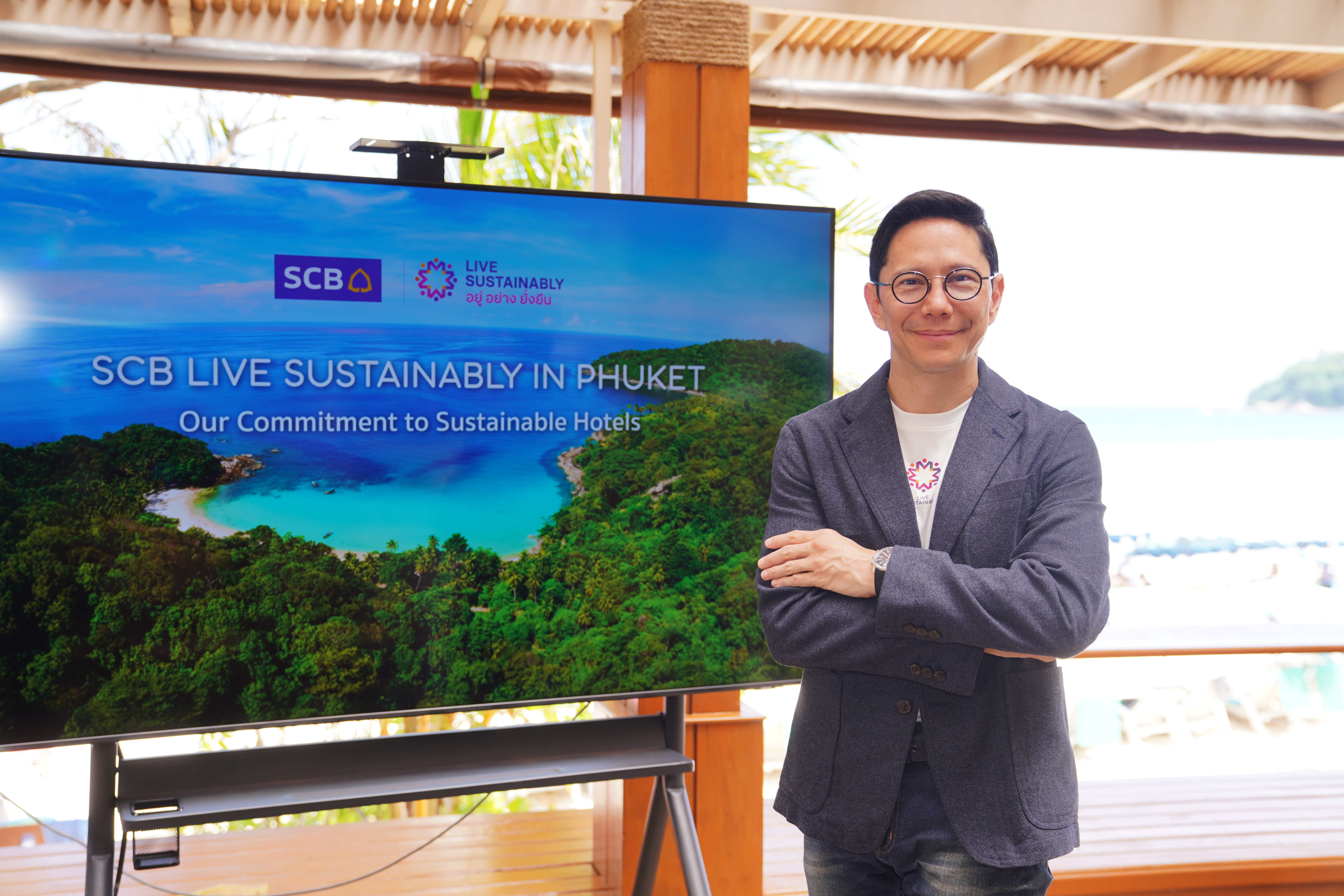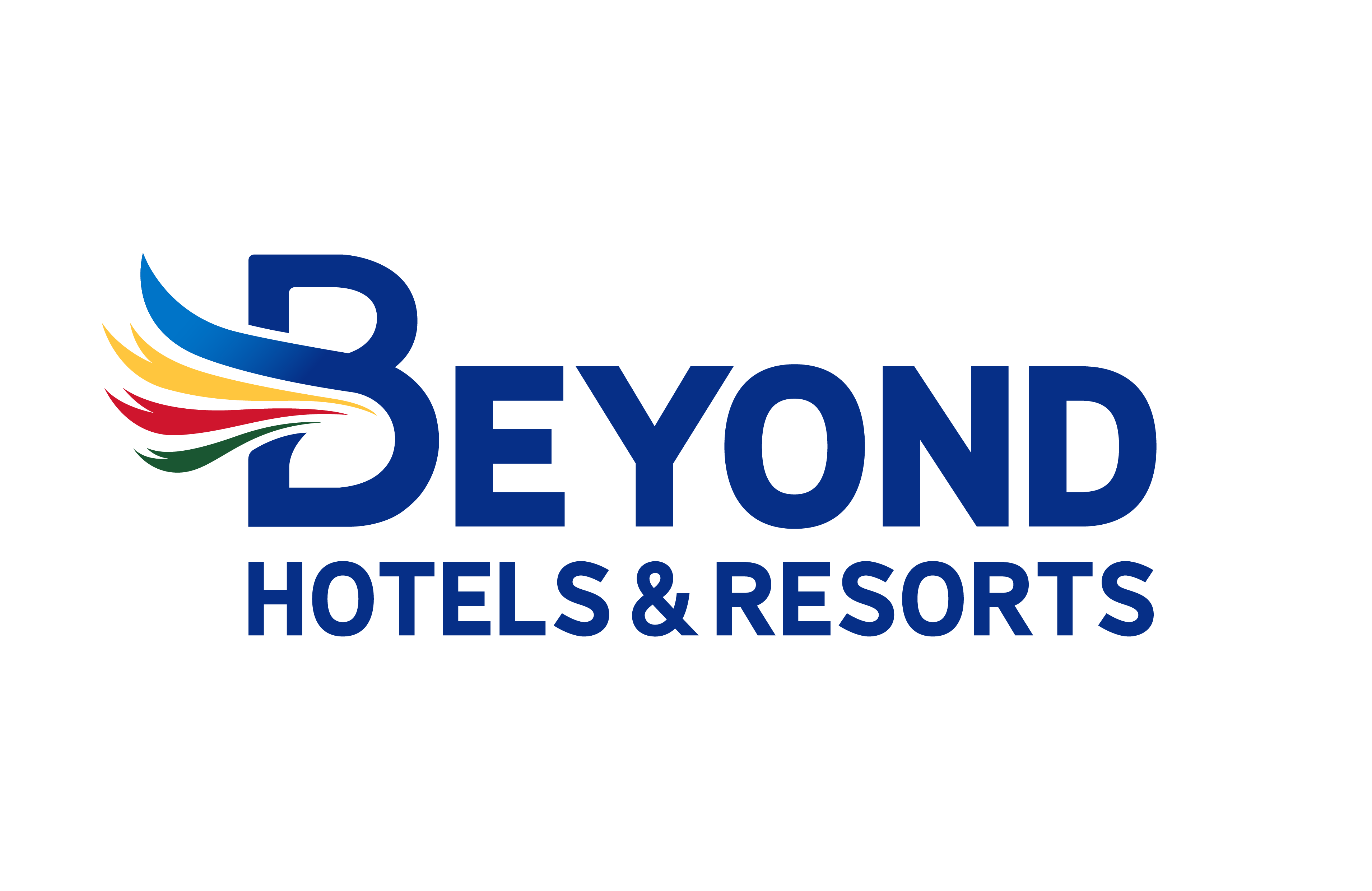
SCB spearheads green financing for Phuket hotels, touting sustainability as the "path to survival" for Thailand's economy.
Amidst global turmoil, a fragile economy, news of tsunamis and earthquakes, the war between Iran and Israel, and even domestic problems, doing business in today's world is fraught with uncertainty and unpredictability.
However, Kris Chantanotoke, CEO of Siam Commercial Bank (SCB), is confident that there is one problem that is "certain" and will unavoidably affect everyone on this planet: the environmental crisis.
The bank's record-breaking performance in sustainability—providing over 180 billion baht in total accumulated Sustainable Finance (loans and bonds) in just 2.5 years (from 2023 to the first half of 2025)
—has already surpassed its original three-year target of 150 billion baht (2023–2025). This underscores SCB's serious commitment to driving the Thai business sector towards sustainability.
Most recently, SCB took the media to the pilot province of Phuket to visit two major hotel groups, "Kata Group" and "Yiteng Hospitality," which are transforming their businesses to become leaders in sustainable hospitality with tangible loan support from SCB.
Of course, here is the English translation of the text you provided:
Why Phuket?
Because today, Phuket is the 'heart' of the tourism industry that nurtures the country's economy.
In 2024, the tourism sector generated over 2.6 trillion baht in revenue, or about 14% of the GDP, with Phuket ranking as the highest-earning province at over 490 billion baht.
In the first five months of 2025, while the overall number of foreign tourists to Thailand saw a slight decrease of -3% (YoY) to 14.4 million, Phuket bucked the trend with over 2.4 million foreign arrivals, an increase of about 8% (YoY).
The main growth came from high-spending, long-stay tourists from Europe, America, and the Middle East, which benefits hotels and tourism businesses.
Good Revenue, Good Conscience
Currently, over 53% of global travelers are concerned about sustainability, including the impact on local communities and the environment (Booking.com, 2025).
When Thai hotels adopt sustainable practices, they not only attract environmentally conscious tourists who are willing to spend more but also help stabilize their revenue streams. This reduces the impact from the loss of certain tourist segments and transitions the industry from a focus on "quantity" to "quality," creating a distinct and unique identity for Thai tourism.
Entrepreneurs in Phuket are highly motivated to push for sustainability in the province. This is because Phuket is a pilot province in a sustainable development project with the goal of becoming a central hub for sustainable tourism by 2027. Furthermore, it is preparing to host the Global Sustainable Tourism Conference in 2026.
SCB has consistently prioritized the hotel business sector, holding the largest loan portfolio in the Thai banking industry at 135 billion baht. The Andaman region accounts for 25% of this total hotel portfolio, and for Phuket hotels alone, the bank's portfolio is around 20 billion baht.
What SCB can do better is to expand green financing to small and medium-sized enterprises (SMEs), as these loans are currently concentrated among medium-to-large businesses and major corporations. The challenge is to make smaller operators understand that sustainability is a way to reduce costs and build a foundation for long-term survival. We believe there is still a gap that can be filled, but it will take time.
Therefore, SCB's current focus is on knowledge transfer to entrepreneurs at all levels through various courses. This helps each organization start correctly on its sustainability path without necessarily needing to begin with a large capital investment from a bank loan.
The guidelines for providing sustainable loans to the hotel sector are divided into two main groups:
Large hotels that have consistently focused on the environment. They already understand the "green hotel" concept and wish to develop their practices to become even more sustainable.
New or small-to-medium-sized hotels that want to become environmentally friendly but are hesitant, wondering if sustainability investments will be an added cost or if they will be worthwhile in the long run. They also want to know how these sustainability efforts can benefit the surrounding communities.
The operational plan consists of two main components:
1. Existing Hotels Beginning Their Transition (Less Brown):
SCB will bring in expert sustainability partners to help build awareness, understanding, and formulate appropriate sustainability strategies. The bank will offer "Financing the Transition" loan programs to prepare businesses for improvements in energy efficiency, water management, or the use of renewable energy. These strategies will help reduce costs and lay the foundation for scalable, sustainable business operations in the future.
2. Sustainable Hotels:
SCB aims to support clients who are ready to achieve international sustainability standards. This will help reduce costs, attract premium customers, and support long-term, sustainable business growth.
The bank will offer financial products linked to the client's sustainability goals, such as Sustainability-Linked Loans, Green Loans, and Green Bonds, to support the achievement of clear, transparent, and recognized sustainability targets, including international certifications.
This includes both:
(1) Sustainable Building Certification: Supporting new construction or hotel renovations to achieve international sustainable building certifications such as LEED (at Gold and Platinum levels), EDGE, WELL, or TREES.
(2) Sustainable Operating Certification: Supporting hotels in obtaining internationally recognized sustainable operation standards, such as GSTC-recognized certifications (Green Hotel Plus, EarthCheck, GreenGlobe), as well as other international standards. The bank is driving its hotel and service business loan portfolio in Phuket to become sustainable, piloting the initiative in Phuket to serve as a model for the country's entire hotel industry.

Credit : marketeeronline










